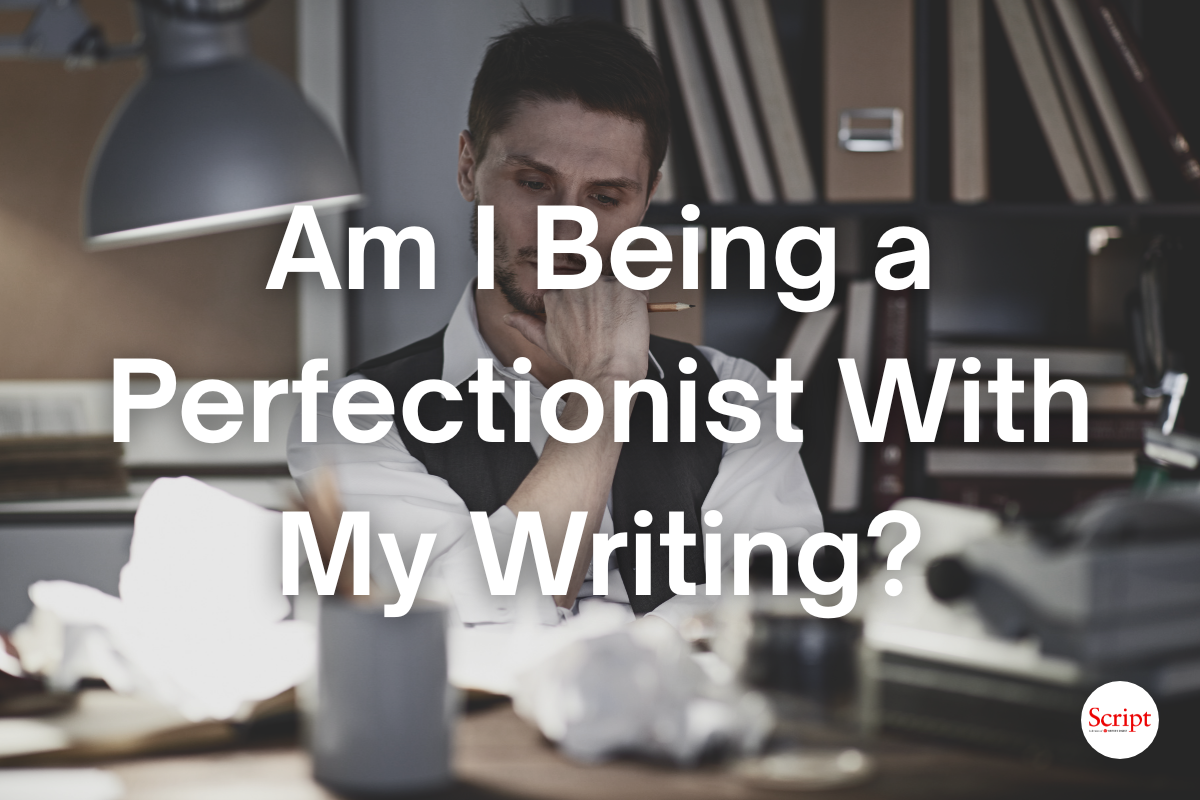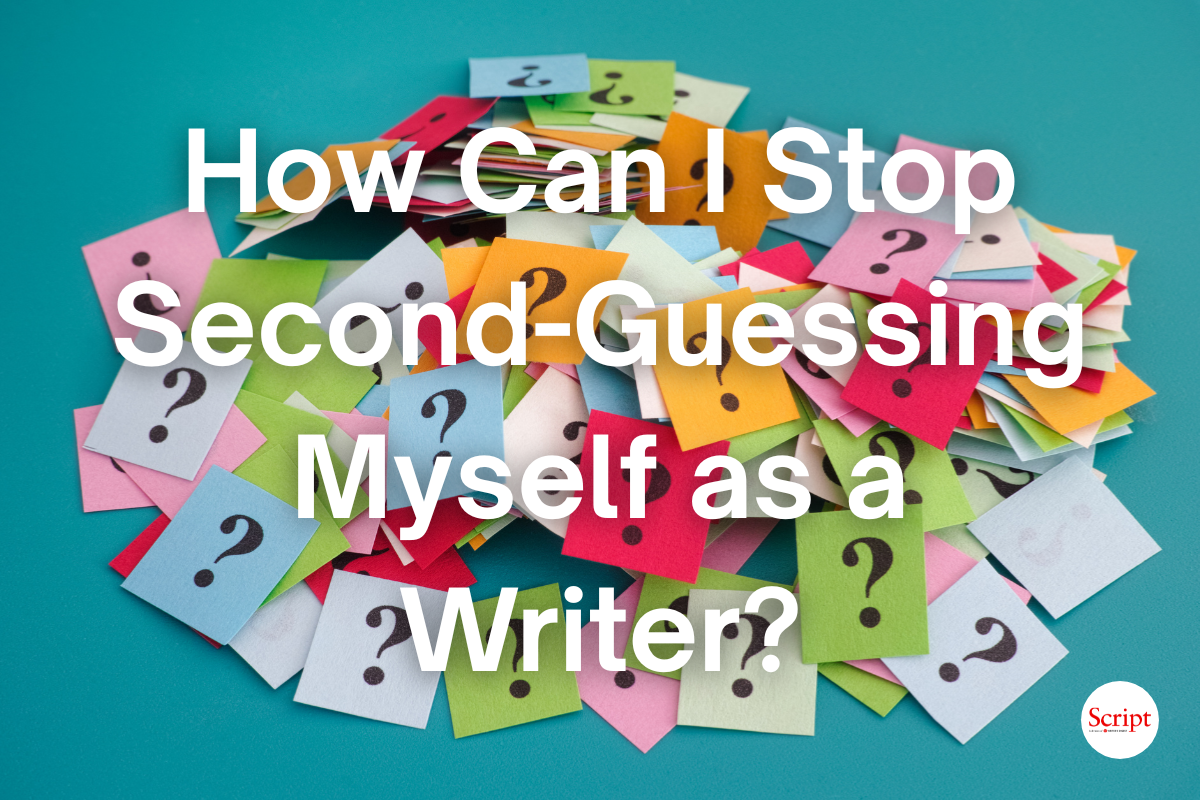7 Approaches to Finding Confidence Again as a Writer
Writing coach and Called to Write founder Jenna Avery responds to a reader about finding confidence in herself as a writer again.
Welcome to “Ask the Coach.” As a writing coach, I answer questions from writers about making the work of writing happen, tackling craft, business, and personal questions along the way. (Have a question you’d like answered? Check the details at the end of the article about how to submit one.)
Today I’m responding to a writer about confidence, who says:
I’m so glad you wrote to ask about having confidence in yourself as a writer and in your writing. Especially after having a rough patch, it’s challenging to both rebuild confidence and trust that it will last. I’ll share some thoughts here about approaches and strategies you might consider.
1. Give yourself time, space, and support to recover.
You’ve had a rough year and a half, which means you’ve been through something that’s challenged you personally, professionally (writing-wise or otherwise), or both. If the roughness was directly related to writing, that can be even more difficult. Regardless of the details, you need time and space to heal and recover. This means taking time to do things that support you.
For me that looks like therapy, talking with friends, reading and watching media that inspires and delights me, getting good sleep and exercise, eating well, pursuing non-writing artistic endeavors that make me happy (and are just for me), and spending time in nature and with my family.
If you’ve experienced a writing-related creative wound, consider working with a therapist or writing coach who understands the impacts of creative wounds and how to recover from them.
And, finding your way back to writing and gradually rebuilding trust and belief in yourself and around writing is also significant and important (more on that below).
2. Be as “full of yourself” as you can.
Although many of us were admonished as kids, “don’t be so full of yourself,” that’s exactly what we should be doing. Being “full” of yourself means you are entirely embodying your selfness; feeling confident and having clarity about who you are and your place in the world, warts, challenges, talents, gifts, and all. And since that’s where your best writing comes from, it’s worth tapping into these feelings.
While this can be easy to say and yet feel hard to achieve, remind yourself of times when you have felt “full of yourself” — and confident — without doubts or second-guessing. What were you doing? Where were you? Who were you with? How did you feel in your bones?
It may have been the briefest of moments, or happened long ago (many of us feel this way as kids, like I said) but I feel sure you’ve had moments like that.
Feel into those moments and extrapolate the energy and intention from them. You might even write about the experience — what happened, how it felt, etc.
Then, try writing about yourself, in the not-too-distant future, where you can see and imagine yourself feeling confident about writing. One trick, try writing in 3rd person to make it feel like a believable story: “Even on days when self-doubt rears up, she shows up confidently to do the best work she can, believing she’ll only get better and better.”
3. Write when you can, as much as you can.
When you’re lacking confidence about writing, it can feel difficult to even write at all. However, reconnecting to your voice and writing is part of the path back to rebuilding your confidence.
Start where you can, when you can. Journaling about anything is a pathway back to writing. Working on a script you love is another. Connecting with characters who are counting on you to tell your story helps you make it less about you and more about them. They chose you for a reason.
Keep putting words on the page until you begin to feel like yourself again. Writing morning pages is one of the easiest and best ways I know to do this.
4. Find writing lifelines.
When you’re in the midst of a creative recovery, look for and cling to writing lifelines to help you stay connected to the idea of writing, even if you’re struggling to actually write. Journaling is one way, since it exists somewhat separately from craft-focused writing. Writing classes can be another lifeline. So can gentle writing groups where you’re not submitting work, but focused on making the work of writing happen, which can include creative recovery work (this is how my online writing community works).
When I was going through my own semi-recent rough patch with writing, I took a series of low-cost screenwriting classes. It felt like a way of hanging on for dear life. Being in a space with other screenwriters was affirming and inspiring, and helped me reconnect with my motivation for writing, bit by bit. I left every class thinking, “Oh yeah, that’s it! That's why I'm here, that's why I'm writing.”
You might also find inspiration in this “invocation for beginnings” by Ze Frank (note: includes some swearing).
One other parting thought on this subject: remind yourself why you like to write and want to write. I know you’re here because you have something to say. Remind yourself what that is.
5. Get feedback from trusted sources.
When you feel ready (and it’s OK if that’s not for a long while!), find one or more trusted sources who will help you see the positives in your writing and focus on what you’re doing well. Sometimes outside validation is exactly what’s needed to help you regain objective perspective about writing. Note: neither inflated positives nor extreme negatives are helpful. You need trusted feedback so you can reground yourself in truth and objectivity.
This is because ultimately, writing exists separately and outside of us. When we can treat it objectively, we remember it’s work we want to see working (coming together in a cohesive whole, being produced and out in the world, etc.). Shifting your perspective and mindset into a work framework, not a personal one, will help you. It’s not about you, it’s about the work, and helping it be the best it can be.
6. Trust the muse.
Along these same lines, when we make our writing be about ourselves, it feels like a referendum on who we are as individuals. However, when we tap into a higher power or muse, we can hold writing less as something we are solely creating, and more as something we are working in service of, almost like a “channel” or a “receiver” for a story. And it’s our job to get it down, as well and as imperfectly as we can.
While this might seem a little woo-woo to some, it takes a huge amount of pressure off us as writers, and can even open avenues for significant breakthroughs.
(One of my best-ever writing breakthroughs was the result of a handwritten conversation I had with my protagonist, where “she” came up with the most brilliant insight about the story… and to this day it still doesn’t feel like “my” insight, even though I know full well I was the one putting the worlds on the page.)
Elizabeth Gilbert’s TED Talk, “Your Elusive Creative Genius” is my all-time favorite source for inspiration in this department.
7. Soothe your inner critic.
Last, but not least, let’s acknowledge that much of self-confidence in writing is undermined by that lovely little “friend” we all have called the “inner critic.”
The most important thing to know is that your inner critic is trying desperately to do every single thing it possibly can of to keep you “safe.” Safe from ridicule, failure, exposure, yes. But also “safe” from success, attention, and fulfillment. It doesn't know you want those things, which seem so very risky to it.
This is why the voice of the inner critic gets louder and louder as you move closer to taking action on your dreams. It's trying to stop you, to keep you protected. So as you recover, know that your inner critic will speak up and urge you — yell— to hold back, stay safe, and not to engage.
You get to treat that part of you like a scared inner child and remind her that you’ve got this, the voice of fear is just fear, not truth, and that you’ll take care of both of you as you journey back onto the writing path.
That’s a Wrap
Losses of self-confidence are a real thing that happens for writers, through setbacks, life events, and more. It takes courage and intention to move (back) into creative risk-taking, but we can do it. Take it one step at a time — as easily and as slowly as you need to — trusting you will gradually reconnect with the truth of who you are and what you were put here to do: write.
Thank you for reading, and happy writing.
Warmly,
Jenna
Screenwriters, what challenges do you run into that you'd love to see us address in our articles? Take our short survey here, submit your question to be answered anonymously via my online form here, or email me directly at askthecoach@calledtowrite.com. Look for answers to selected questions in my monthly “Ask the Coach” column on the third Thursday of the month.
Find me on Twitter @JennaAvery and Bluesky @jennaavery.bsky.social.







